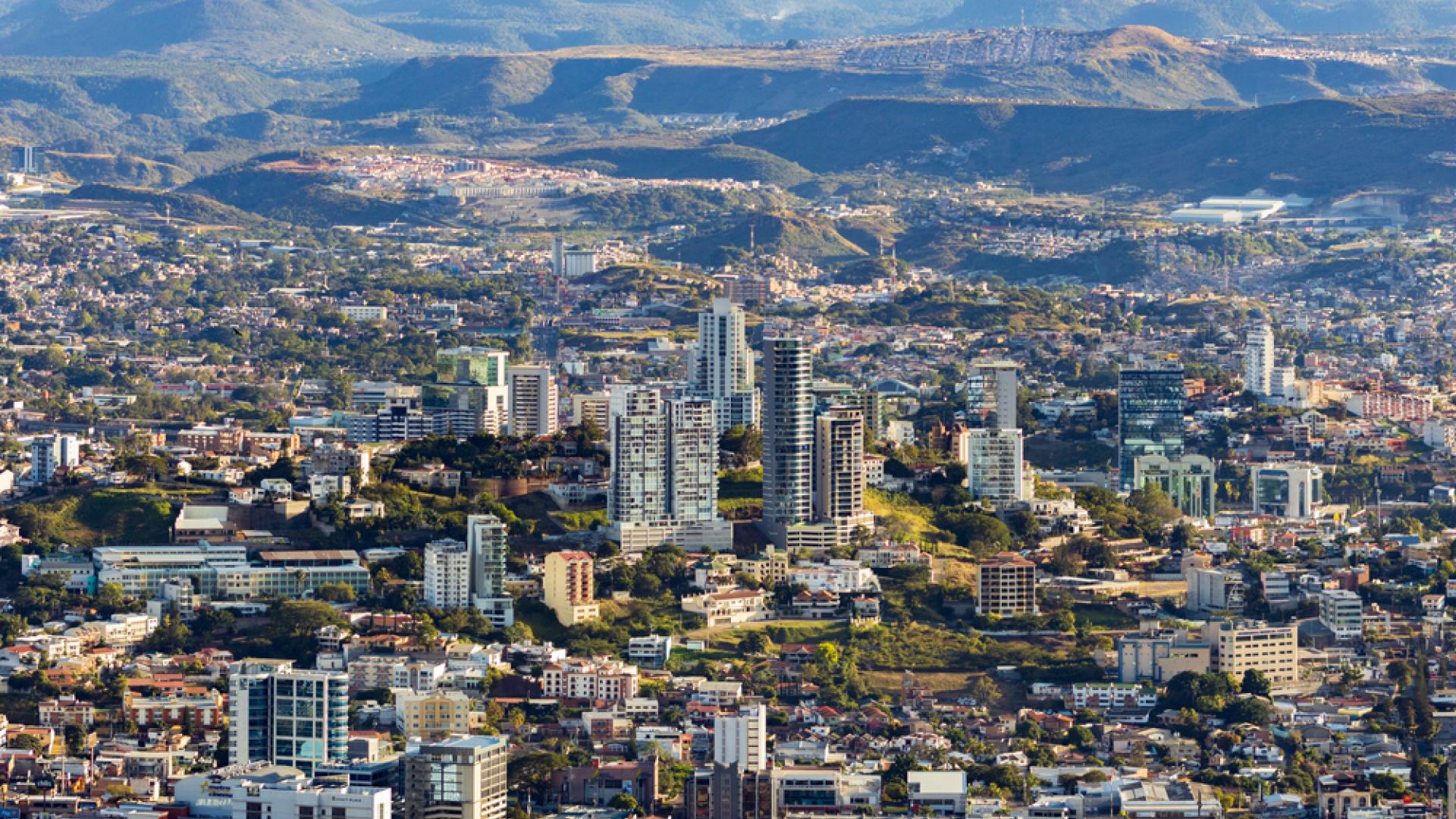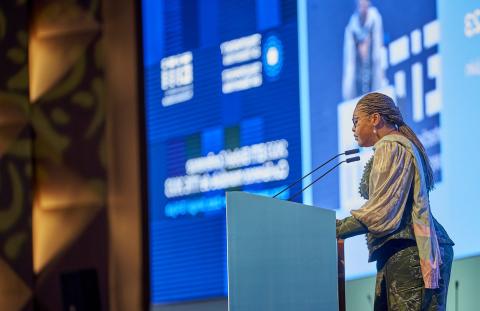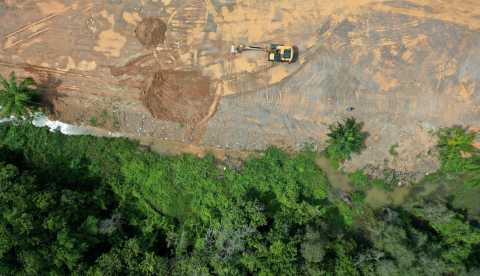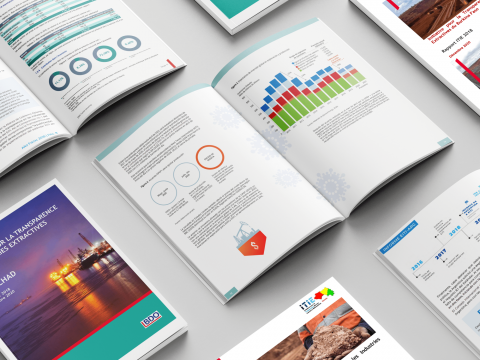
Honduras
Overview and role of the EITI
Honduras has a small extractive sector, contributing less than 1% of government revenue and 0.62% of total GDP in 2019. While there has been interest in expanding mining investments and developing the hydrocarbon sector, there has been no commercial production of oil or gas to date. Honduras mainly produces gold, zinc, calcium carbonate, silver and lead.
Economic contribution of the extractive industries
- 0.77%
- to government revenues
- 2.34%
- to exports
- 0.06%
- to GDP
- 0.35%
- to employment
News, blogs and more

Vingt ans et toujours plus forts : Engagements de l’ITIE à travers le monde

EITI Debate: What's the deal? Contract transparency in Latin America and the Caribbean

Debunking the security myth in beneficial ownership transparency

Nouvelles approches pionnières en matière de rapportage ITIE
Innovations and policy reforms
- Honduras’s 2019-2020 EITI Report adopts a flexible approach and was prepared by the multi-stakeholder group (MSG) without additional funding. The report includes timely information about ongoing reforms, fiscal incentives and the impact of the COVID pandemic on the mining sector.
- Honduras’s 2017-2018 EITI Report provides employment information disaggregated by gender for the first time.
Extractive sector data
Commodity production
Revenue collection
Revenue disbursement
Revenue distribution
Extractive sector management
Tax and legal framework
The mining sector in Honduras is governed by the General Mining Law of 2013 and administered by the Honduran Institute of Geology and Mining (INHGEOMIN). The hydrocarbon sector is governed by the Hydrocarbon Law and administered by the Secretary of Natural Resources and Environment (SERNA/MIAMBIENTE).
Extractive companies are subjected to taxes as per the Tax Code, the General Mining Law, the Hydrocarbon Law and the prevailing contracts and municipal taxes levied directly at the subnational level. An overview of the applicable taxation framework is available at the Secretary of Finances (SEFIN).
License and contracts
Mining licenses are awarded and administered by INHGEOMIN. The procedures for requesting a mining license are explained in the 2019-2020 EITI Report as per the applicable regulation. Mining licences are publicly available via the INHGEOMIN portal.
The hydrocarbon sector is managed under a contract regime. The 2014 EITI Report elaborates further on the awarding procedures. Honduras has no oil or gas production to date.
Beneficial ownership
Honduras requires companies to disclose beneficial ownership information through the Special Law for Money Laundering and the Regulation on Requirements, Control Measures and Responsibilities of Institutions. In 2015, EITI Honduras produced a report on beneficial ownership to assess the country’ legal framework and key considerations for disclosure. Honduras has adhered to the Caribbean Financial Action Task Force to disclose information about beneficial ownership.
For the process of preparing the EITI Report, EITI Honduras requests beneficial ownership information from companies adhered to the EITI Standard. However, this information is not publicly available.
Revenue distribution
Honduras’s Constitution (Article 636) establishes that ordinary tax revenues constitute a single fund in the General Treasury. Therefore, all taxes from the extractive sector are transferred into that fund, which is subsequently used for the execution of the state budget.
Municipalities receive shares of mining revenue in accordance with the Municipalities Act. Direct revenues are also received in relation to mining activity in accordance with the Mining Act. The Municipalities Act (Article 91) establishes that the state must distribute a specific percentage of revenues to the municipalities from the central fund of the General Treasury. However, it is not possible to determine whether this subnational transfer comes from the extractive industry payments.
EITI implementation
Governance
EITI Honduras is administered by the Honduras Multi-Stakeholder Group (MSG), also known as the Consejo Nacional. The MSG is hosted by the Honduran Institute of Geology and Mines (INGHEOMIN). It is comprised of representatives from government, industry and civil society. In August 2023, the EITI International Secretariat conducted a high-level mission to Honduras, resulting in the designation of the Minister of Environment and the Minister of Energy as EITI Champions.
Timeline
Government announces commitment to join the EITI
Multi-stakeholder group is formed
Candidature application is submitted
Application
Honduras joined
2013 EITI Report published
Report
2014 EITI Report published
Report
Validation
Validation documents
2015-2016 EITI Report published
Report
2017-2018 EITI Report published
Report
Validation; suspended for inadequate stakeholder engagement
Board decision
2019-2020 EITI Report published
Report
Validation
Honduras was found to have made meaningful progress with considerable improvements in implementing the 2016 EITI Standard in October 2020, following its second Validation. However, due to inadequate civil society engagement, the country is temporarily suspended. Honduras has fully addressed seven of the 12 corrective actions identified in its previous Validation.
In June 2023, the Board agreed to conduct a targeted assessment of Requirement 1 in line with Board decision 2023-32. On 30 November 2023, the EITI Board concluded that Honduras has achieved “mostly met” on EITI Requirements 1.2 on industry participation, and “partly met” on Requirements 1.1, 1.3, 1.4 and 1.5 on government and civil society participation, multi-stakeholder oversight and work planning.
Honduras' EITI implementation since its 2020 Validation under the 2016 EITI Standard has been constrained by several challenges, including the lack of effective government leadership, insufficient resources to support the multi-stakeholder group and its work plan activities, and difficulties in ensuring meaningful civil society participation. Despite the challenges, EITI-Honduras has disclosed information in accordance with the EITI Standard and maintained a de-facto multi-stakeholder group. Current government authorities have expressed renewed commitment to EITI, and both industry and civil society stakeholders are equally resolute in recognising the value of EITI implementation and their determination to participate in a revitalised process. All parties are committed to continuing EITI implementation, emphasising the need for swift action to foster collaboration and establish a clear work plan for the years ahead. The next Validation of Honduras is expected to commence in July 2024.




